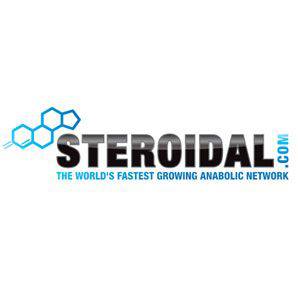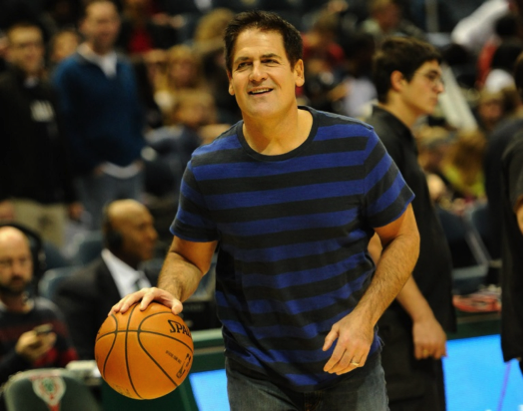News: Dallas Mavericks Owner Thinks The NBA Should Study The Potential Benefits Of HGH Use
Blog Entry #11
By Dan Chaiet, Senior Editor – Steroidal.com
Injury prevention and rehabilitation has been an essential element of every single sport. The nature of professional and elite level sports involves inherent risks of injury not only within contact sports, but also non-contact injury related to wear and tear from daily rigorous activity that the body is placed under. Many MLB players who have been implicated of anabolic steroid and performance enhancing drug use in the past have admitted to their use, but for the purpose of injury rehabilitation, recovery, and the ability to compete at the lite and professional level consistently without succumbing to regular intense wear and tear that would end an athletic career. An athlete who injures himself or herself risks many setbacks, not only to their respective careers but also to the sport and others related to the sport as well. Unfortunately, the media has had a horrible habit of focusing solely on the performance enhancing aspect of anabolic steroid and human growth hormone use and has ignored one of the real purposes of use among athletes: injury recovery and prevention. But this could possibly be changing.
The NBA in particular has suffered a recent bout of sports-related non-contact injuries, disabling a whole lineup of players that might likely have a big impact on the sport due to sidelining of these players. The injuries have included ligament tears, muscle strains, and joint damage – all forms of damage that human growth hormone (HGH) is known as being an effective recovery and healing remedy for. Mark Cuban, the owner of the Dallas Mavericks, has recently commented on this issue at the 2013 Sloan Sports Analytics Conference, stating that Mavericks are “locking up our medical staff to longer-term deals than our players” in reference to the impact that these injuries have been having. Mark Cuban is pushing the idea that sports organizations, including the NBA, should investigate the use of HGH for the purpose of healing and recovery.
The interesting aspect of HGH is that it is currently not officially approved for this use, and even among the general population this is a very grey area in medicine where the medical establishment as a whole does not recognize recovery and healing as a valid use, especially in the United States. In other countries such as Canada, the area becomes even greyer where doctors have much more discretion over what HGH can and cannot be prescribed and used for – there is more leeway for its prospective clinical uses. However, the issue becomes very black and white when its use within sports is concerned, and Mark Cuban is quoted as telling USA Today that “The issue isn’t whether I think it should be used. The issue is that it has not been approved for such use. And one of the reasons it hasn’t been approved is that there have not been studies done to prove the benefits of prescribing HGH for athletic rehabilitation or any injury rehabilitation that I’m aware of. The product has such a huge (public) stigma that no one wants to be associated with it.”
The issue here in this case is that where sports is concerned, the face of HGH has been marred due to the reputation that has been created surrounding it in regards to its use by MLB players and other sports athletes in an attempt to enhance performance. The claims against HGH use in sports range from the issue of doping to the claims that it could be detrimental to the athlete’s health. The interesting thing here is that neither of these claims have been proven clinically or anecdotally. Many bodybuilders and general users of HGH for performance enhancing use will more than likely exclaim that its benefit is primarily in the realm of recovery, healing, and possibly fat loss, lending it more of a benefit towards aesthetics rather than performance. As far as health concerns are concerned, even Mark Cuban has said that, “Working together could lead us from the path of demonizing HGH and even testosterone towards a complete understanding. It could allow us to make a data based decision rather than the emotional decision we are currently making. And if it can help athletes recover more quickly, maybe we can extend careers and have healthier happier players and fans.”
After all, if the claims that a substance is a banned substance due to its supposedly harmful effects, would it not make sense to further study and investigate it in order to either reject or support these claims? Mark Cuban certainly does have a valid point here that the vast majority of decisions being made within the sports world have been based on emotion rather than logic and reasoning, and the result is the unfortunate and questionable demonization of substances such as HGH, Testosterone, and anabolic steroids in general. Of course, this would be a difficult battle in the midst of the ever growing sentiment of increasing testing procedures and penalties for banned substances in different sports across the board, and Mark Cuban is definitely a brave man for going against the grain in the midst of such a climate.
This could possibly be a new spearhead into righting the wrongs that have been done to the reputation of HGH and anabolic steroids, and perhaps bringing the public more awareness to the facts and logic rather than blindfolded emotion. This is definitely something to look into further, and likely not the last we will hear about this. Hopefully the pendulum will slowly swing back towards the center and reduce some of the public stigma and bias in regards to HGH and anabolic steroids, but it might take quite a long time considering the large amount of damage that has been done to the reputation of these substances already.








